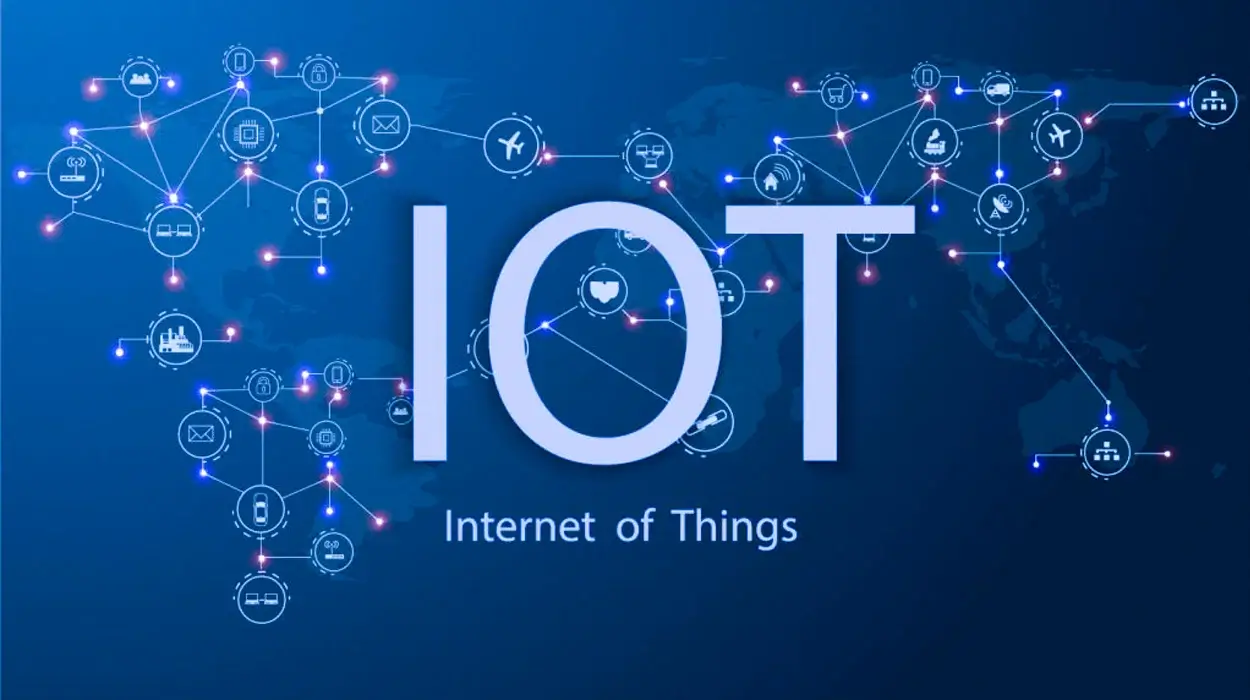Introduction to the Internet of Things (IoT)
The world is experiencing a technological revolution like never before. The Internet of Things (IoT) is at the forefront of this change, weaving smart devices into the fabric of our daily lives. From your coffee maker to your thermostat, technology is transforming how we interact with our surroundings. Imagine waking up to the smell of freshly brewed coffee, prepared by a device that knows exactly when you need it. This isn’t just a futuristic dream; it’s happening right now as various gadgets connect and communicate seamlessly.
As we dive deeper into this fascinating realm, let’s explore what IoT really means for us today and how these innovations are reshaping not just homes but entire industries too. Buckle up—this journey through the interconnected world promises to reveal insights that could change your perspective on everyday technology!
Examples of Smart Devices and Their Uses
Smart devices are revolutionizing the way we live. Take smart speakers, for instance. They not only play your favorite music but also control other connected devices in your home with simple voice commands.
Then there are smart thermostats that learn your preferences over time. This feature allows them to adjust heating and cooling automatically, ensuring comfort while saving energy.
Wearable technology has gained immense popularity too. Smartwatches track fitness goals and monitor health metrics like heart rate and sleep patterns, empowering users to make healthier choices.
In kitchens, smart refrigerators can suggest recipes based on available ingredients. They help reduce food waste by notifying you when items expire.
These examples illustrate just a fraction of what’s possible with IoT technology today. The integration of these devices into our routines enhances convenience and efficiency daily.
Benefits of IoT in Our Daily Lives
The Internet of Things (IoT) brings remarkable advantages to our everyday experiences. Smart devices seamlessly connect, enhancing convenience and efficiency in our routines.
Imagine waking up to a coffee maker that brews your favorite blend automatically. With IoT, this is not just a dream but a daily reality.
Smart thermostats adjust the temperature based on your preferences, saving energy while keeping you comfortable. This level of personalization transforms how we interact with our environments.
Health monitoring devices track vital signs continuously, providing real-time data to users and healthcare professionals alike. This proactive approach fosters better health management.
Moreover, smart home security systems offer peace of mind by alerting homeowners to unusual activities instantly. Remote access lets you monitor your property from anywhere.
With these innovations, life becomes simpler and more manageable as technology integrates into every aspect effortlessly.

Impact of IoT on Industries and Businesses
The impact of IoT on industries and businesses is profound. Smart devices are streamlining operations like never before. They collect data in real-time, enabling better decision-making.
Manufacturers leverage IoT to monitor equipment health. This proactive approach reduces downtime and saves costs. Predictive maintenance becomes the norm, allowing companies to fix issues before they escalate.
In retail, smart shelves track inventory levels automatically. Businesses can optimize stock management and improve customer satisfaction through timely restocking.
Healthcare also benefits significantly from IoT technology. Connected devices allow for remote patient monitoring, enhancing care while reducing hospital visits.
Logistics firms use GPS-enabled sensors to provide transparency throughout supply chains. Enhanced tracking leads to increased efficiency and less waste.
As various sectors embrace these innovations, the potential for growth and improvement continues to expand rapidly across all fronts of business operations.
Concerns and Risks with IoT
As the Internet of Things (IoT) continues to expand, several concerns and risks emerge. One significant issue is security vulnerabilities. Many smart devices lack robust protection features, making them susceptible to hacking.
Data privacy is another pressing concern. Smart devices often collect vast amounts of personal information, which can be misused if it falls into the wrong hands. Users may not fully understand how their data is stored or shared.
Interoperability presents challenges as well. With numerous manufacturers creating different standards, compatibility issues arise among devices. This fragmentation complicates user experience and limits functionality.
Additionally, there’s the potential for over-reliance on technology. When critical systems fail or face cyberattacks, our dependence could lead to severe disruptions in everyday life.
These factors highlight that while IoT offers immense benefits, caution must be exercised as we navigate this rapidly evolving landscape of technology.
Future Predictions for IoT
The future of IoT is vibrant and full of possibilities. As technology advances, we can expect even smarter devices that seamlessly integrate into our lives. Imagine homes where every appliance communicates with each other to optimize energy usage.
Healthcare will see significant improvements as wearable devices monitor health in real-time. Patients could receive personalized care based on data collected continuously from smart sensors.
Cities are also set for transformation. Smart traffic lights could reduce congestion by adjusting in response to real-time traffic flows, enhancing urban living conditions.
Security measures will evolve too, with advanced AI algorithms analyzing patterns to detect anomalies quickly.
By 2030, analysts predict billions more connected devices worldwide, creating an intricate web that enhances efficiency and convenience across sectors. The potential impact is staggering; industries will adapt or risk being left behind in this tech-driven era.
Conclusion
The Internet of Things (IoT) is transforming our daily lives in ways we never imagined. From smart homes to connected vehicles, technology continues to weave itself into the fabric of our existence. The convenience and efficiency offered by these devices are undeniable. They help us save time, increase productivity, and enhance our overall quality of life.
However, as with any technological advancement, there are challenges to address. Security concerns and privacy issues must be taken seriously as we embrace this new digital era. Companies need to prioritize robust security measures while users should remain vigilant about their data.
Looking ahead, the future of IoT holds immense potential. We can expect smarter cities equipped with efficient infrastructure and improved healthcare systems that provide real-time monitoring for patients. As technology evolves further, it will continue shaping how we interact with the world around us.
Embracing IoT means adapting to a rapidly changing landscape where innovation drives progress across various sectors. The journey toward a more interconnected world has just begun—one filled with possibilities for everyone involved.

